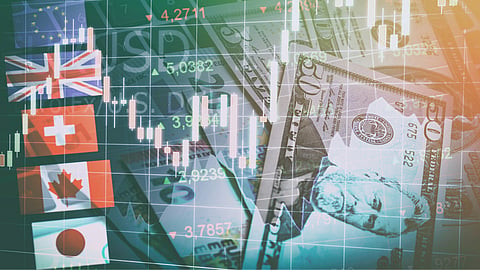The surprising truth about where the real market winners are
By Arin Ruttenberg*
If I asked you which stock market had grown the most over the past 10 years, what would you say? New York? Nasdaq? The DAX? Maybe the Tokyo Stock Exchange? You’d be wrong in every case. The surprise winner was Egypt.
That’s right – Egypt’s EGX-30 index delivered a jaw-dropping +2,250% return from 2014 to 2024. It outperformed every developed market by a wide margin.
And yet, how many people do you know who invested in Egypt a decade ago?
This is exactly why trying to predict the next market leader is a risky game. The better strategy? Own them all.
The winners keep changing Just look at the last few years:
In 2016, Brazil was on top.
In 2018, Qatar led the pack.
In 2022, Turkey surged.
In 2023, it was Argentina.
In 2024, Egypt stunned the world.
And in 2025 so far? Europe is up over 23%, leading global returns.
This constant rotation isn’t a fluke. It’s how markets work. One year’s hero is often the next year’s laggard. Trying to chase these shifts usually ends in disappointment.
Why global makes sense
That’s where global diversification comes in. It’s not just about reducing risk – it’s about increasing your chances of being invested where growth happens.
And it’s easier than you think. With a single ETF or unit trust, you can invest in thousands of companies across over 45 countries.
One of the best tools? The MSCI All Country World Index (ACWI). It includes large and mid-sized companies from both developed and emerging markets, covering about 85% of global equities.
The beauty of this index is that it evolves with the world. If a region like India or Eastern Europe grows in importance, the index adjusts. You don’t need to guess. You just need to stay invested.
Too much U.S. exposure?
A common concern is overexposure to the U.S. And yes, the U.S. has dominated global returns for much of the last decade, powered by companies like Apple, Microsoft, and Nvidia.
But even with the ACWI, around 40% of your investment is outside the U.S. That includes Europe, Japan, South Korea, China, Australia, and more. And this year, that mattered – while U.S. markets lagged, Europe surged ahead.
No one knows who’ll lead the next decade. It might be India. Or Vietnam. Or maybe another surprise like Egypt. That’s why global exposure is so powerful – it prepares you for anything.
At Brenthurst we have been vocal about global diversification for more than that past decade, and these are funds included in many clients’ portfolios:
You can’t predict, so don’t try
Let’s be honest: if we’d tried to pick the top-performing country a decade ago, Egypt wouldn’t have made most lists. And yet, it crushed every other market.
No one – no fund manager, economist, or newsletter – can consistently guess the next winner. That’s why the smartest approach is to spread your investments globally.
How to make it work for you
You don’t need to be a global economist to build a global portfolio. A low-cost ETF tracking the MSCI ACWI is a great start. Or consider a manager with a strong global approach – like Ranmore, which is underweight the U.S. by design.
You can blend these strategies to build a portfolio that’s ready for anything. Because what matters most isn’t picking the winner each year – it’s being invested when the winners emerge.
Stop chasing last year’s stars. Diversify globally, and let the world work for you.
I’m here if you’d like to chat about how you can build global diversification into your portfolio. Want to make your portfolio as global as the world economy? Let’s talk about how.
*Arin Ruttenberg is an advisor at Brenthurst Sandton arin@brenthurstwealth.co.za

